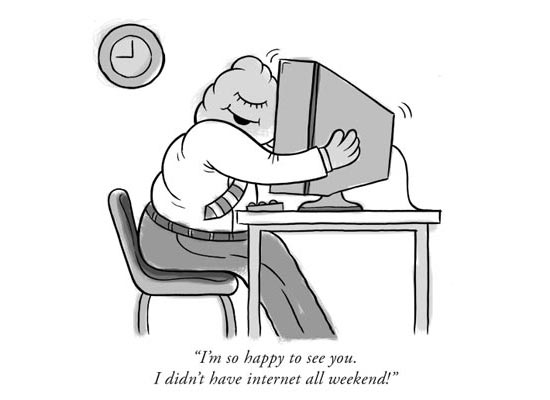QOTD: Is Internet Access a Fundamental Right?
Is Internet access a luxury or a necessity?
In October of last year, Finland became the first country to make broadband a legal right. Come July, every person in Finland will have the right to a one-megabit broadband connection and the Finnish Ministry of Transport and Communications has guaranteed that by 2015, this will be upped to a 100-megabit connection.
Today a new survey shows that 80 percent of people believe that Internet access is a fundamental right. BBC News today reports that a survey of more than 27,000 adults across 26 countries shows that four out of five people believe that Internet should be a basic right.
Today's question of the day is: do you think Internet access should be a fundamental right?
Get Tom's Hardware's best news and in-depth reviews, straight to your inbox.

Jane McEntegart is a writer, editor, and marketing communications professional with 17 years of experience in the technology industry. She has written about a wide range of technology topics, including smartphones, tablets, and game consoles. Her articles have been published in Tom's Guide, Tom's Hardware, MobileSyrup, and Edge Up.
-
deltatux I still am not sure if it should be considered a basic human right. However, a minimum of 1 megabit as a law sounds good.Reply -
frozenlead No. There are dozens of other paths of communication that can be undertaken if the Internet is not present. Sure, the Internet is the most dynamic and useful of all, but it's not necessary for basic and/or civil life. Some may argue that you require it for work and such - but then shouldn't your employer provide you with it during work hours? Does everyone have a right to own a car? No. It's a luxury. We're certainly attached to the Internet a lot, but in no way does that make it necessary, or necessarily a right.Reply -
cscott_it Telephone isn't a right, internet access isn't a right either.Reply
However, for low income families there should be a low-speed discount/coupon. As contradictory as this may sound, I think that children need to grow up somewhat exposed to the internet\computer, or their chances of adapting to non-blue collar job are slim. -
groveborn No, it is not a "basic" right. A basic right is something that cannot be done without. Speech, religion, not being beaten, those are basic rights. Internet access is a luxery.Reply
I'd much rather my country give us free water. Water should be a right. Electricity would also be nice, but that's asking a lot. -
kresso What does "fundamental right" mean? Is that everyone should have it access to obtain it, or everyone should have it for free? I don't think everyone should have it for free, but I'd be lying if I said I wasn't all for a 100-megabit connection for everyone. I just don't know if I would say it is a "fundamental right."Reply -
Spanky Deluxe In a way, yes. Things like education, healthcare, basic nourishment and accommodations are fundamental rights in my opinion. The internet is now a major part of education though so it is a fundamental right in that regard. However, by that I mean that internet should be freely available at public libraries and in schools. Internet at home isn't though. To have benefits such as internet at home, being able to buy textbooks rather than borrow them, to watch tv etc - those should be earned.Reply
However, on the other side of things, the ability to have internet at home within reasonable costs if you can afford it *should* be ensured. Fundamental right maybe not but in a modern country run with taxpayers money, it should be ensured that where you live doesn't determine whether you can get internet or not - i.e. rural places should maybe have caps on how much they need to pay to have internet installed. For example, if you're a farmer living in the countryside then you shouldn't have to pay more than say $1000 to have a line installed rather than the 10s of thousands that such people can be charged. -
restatement3dofted It's surprising to me that so many people feel that internet access should be a "fundamental right," along with the right to marry, the right to privacy, freedom of speech, etc. It certainly doesn't fit nicely into the category of rights recognized as "fundamental."Reply
What does this "right" entail? Right to in-home access? If so, who's going to implement a program so that the "right" means something, and who's going to pay for it? Or is it a more general right to access - for example, by using public terminals or libraries? And what does it mean to even *have* a "right" to internet access? Does it mean a right to purchase access, or does it mean a right to have it provided?
It's a nice thought, a right to internet access - effectively, a right to information and communication - but it starts looking a lot less appealing to me when you start thinking about implementation, oversight, and a vastly higher degree of government involvement in what has, historically, been a largely private industry. Obviously government oversight has been increasing as the internet has become a greater part of our daily lives, but it would skyrocket in the event that it was characterized as a "fundamental right." But let's be realistic - that's happening anyway, whether it's a right or not.
-
Tomtompiper I don't know about what happens where all the posters who said no live, but where I live a lot of jobs are only available on line. I'm not saying that every home should have free internet, but i do think that everybody should have somewhere they can go to access free internet, be that a library or a community centre.Reply
